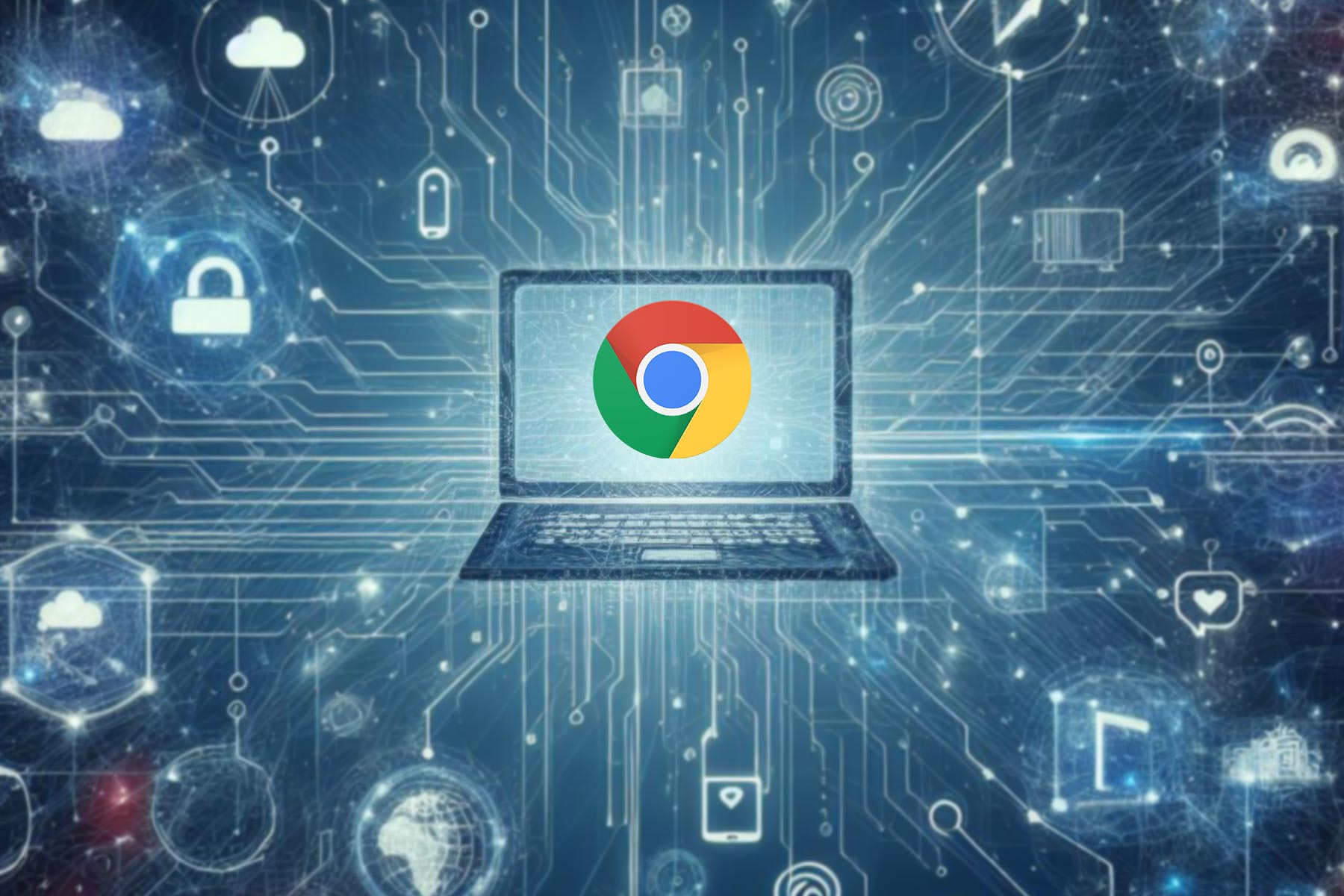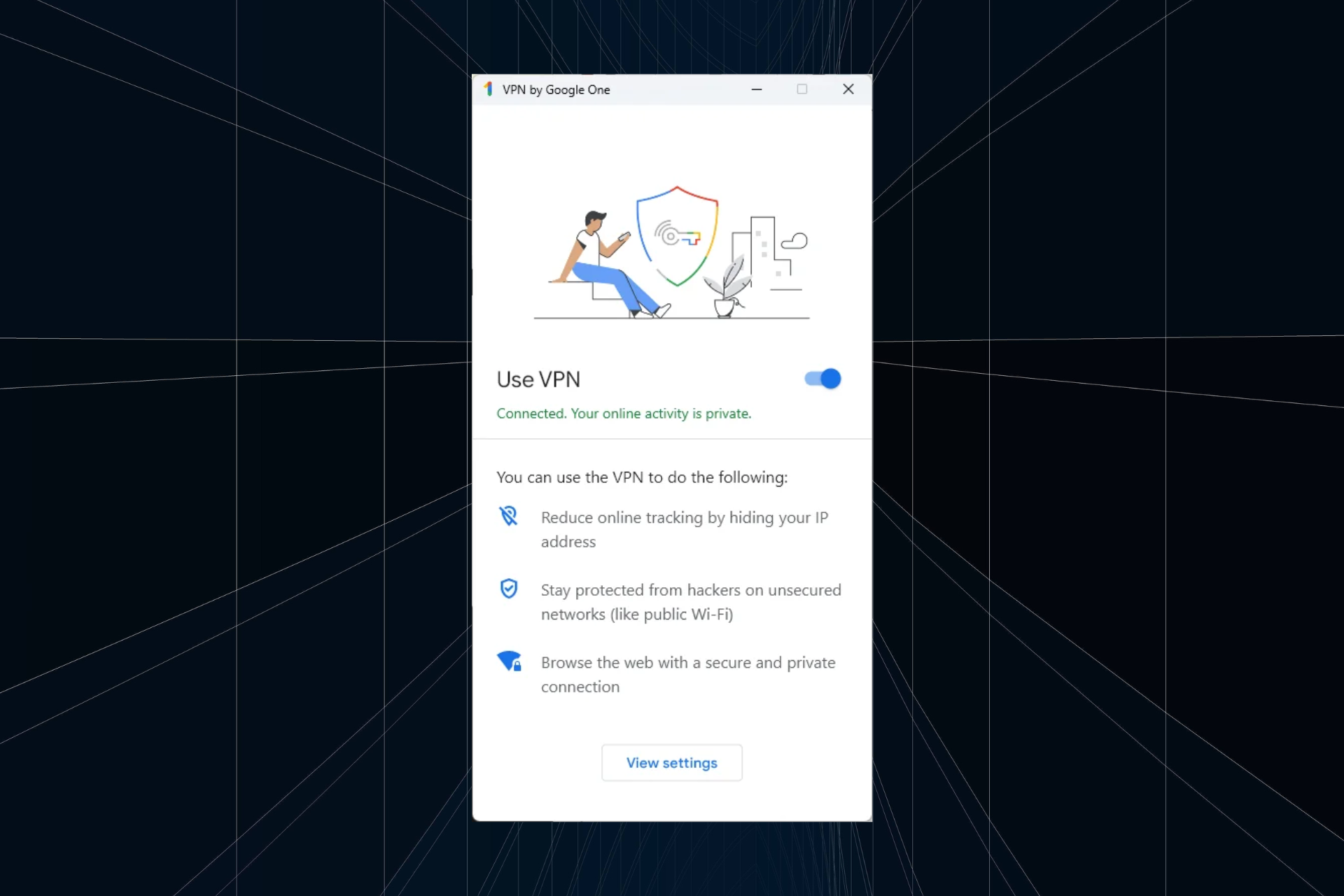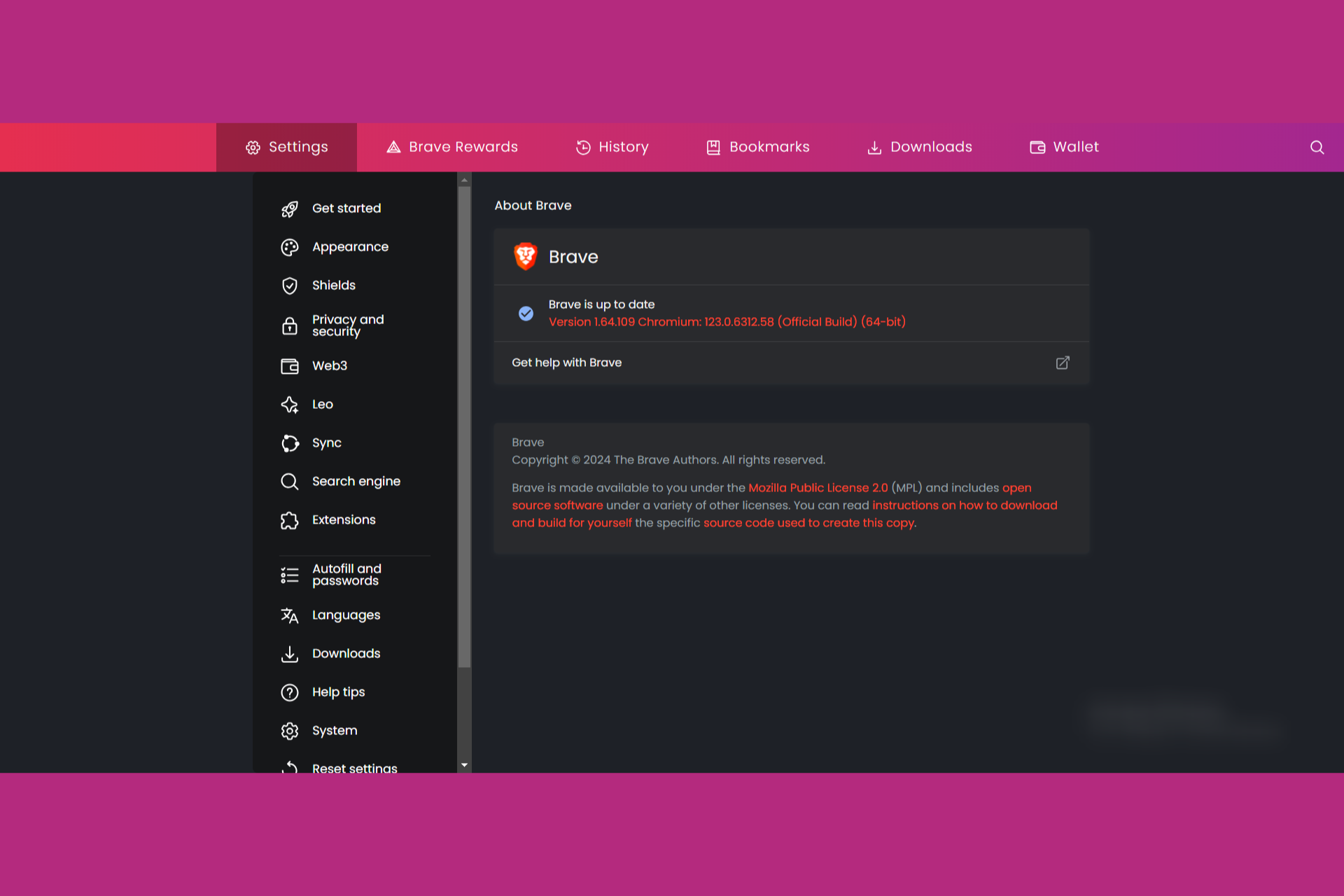Hotel WiFi Blocking VPN: What To Do If You Can't Connect
The suggested VPN client is suitable to completely mask your Internet traffic in hotels
7 min. read
Updated on
Read our disclosure page to find out how can you help Windows Report sustain the editorial team Read more
Key notes
- If your roaming data plan is not too generous, using a hotel WiFi is a great idea.
- However, some hotels are not exactly friendly when it comes to VPN usage, and block them.
- Luckily you can get your VPN working again by disguising traffic or changing DNS servers.
- Check out our guide and learn what to do if your VPN doesn't seem to work in hotels.
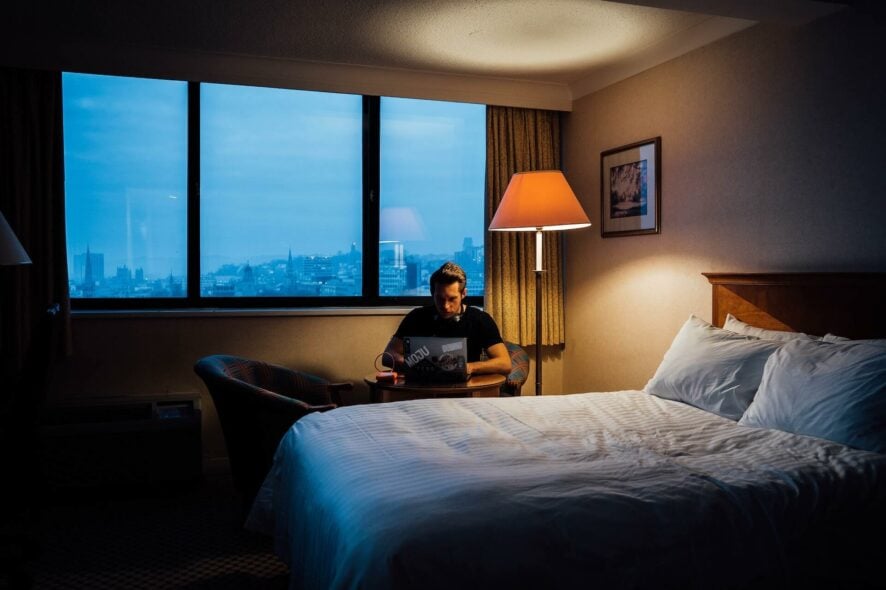
Connecting to different networks can expose you and your devices to potential security vulnerabilities, and closing such loopholes usually result in slow or blocked connections to the corporate server, translating to lower productivity overall.
Most times the first thing that hinders the connection is the VPN itself, as they facilitate secure remote access and let you work regardless of your location.
Despite their importance, one of the most common issues is the level of user attention they need. The best ones need little user input and offer easy user interfaces and straightforward installs and implementations.
However, people who travel and work while they’re at it already have enough to handle, so there’s not much room to constantly configure their VPNs, which can bring up more security holes so it should be avoided at all times.
One of the places where people consistently find themselves trying to deal with remote access issues is hotels.
If a visitor goes outside the hotel to flag a cab, the connection signal weakens and eventually disconnects.
That is unless the visitor usually hotspots because modern VPNs have dialers that integrate into the client and can detect different networks around the area, delivering those available to the device in which the VPN client is installed.
Do hotels block VPNs?
Generally speaking, hotels can and will block your VPN connection if it detects VPN traffic like IPSec protocol. That’s why you’ll likely be greeted with the this network may have a captive portal warning when you try to access the Internet.
Hotels also assume everybody is on SSL VPNs for remote access, so they block access to IPsec ports. They block VPNs, especially for media streaming, because they want you to pay for in-hotel movies instead of streaming for free.
Not only that, it’s possible that hotels will block the following apps or websites due to internal rules of Internet usage:
- NordVPN not working on hotel WiFi
- FortiClient blocking hotel WiFi
- Hotel WiFi blocking games
- Cisco Anyconnect hotel WiFi
- ExpressVPN hotel WiFi
- Pulse Secure hotel WiFi
This article looks at some steps you can take when your VPN doesn’t work in the hotel so you can unblock your service and regain complete access.
What can I do if I can’t connect to a VPN on hotel WiFi?
There are different methods you can use to allow a VPN connection while staying in a hotel.
First of all, you must have a powerful VPN to secure your private data and browsing history. That implies a vast server network in different countries, plus obfuscation technologies for covering VPN traffic.
Another cause for the hotel WiFi restriction can be your network settings’ wrong configuration. At the same time, check the VPN ports to see if they’re properly working.
Plus, the firewall may block your VPN connection as well so you need to allow it from your PC settings.
Try these fixes if your VPN doesn’t work in the hotel:
1. Disguise your VPN traffic
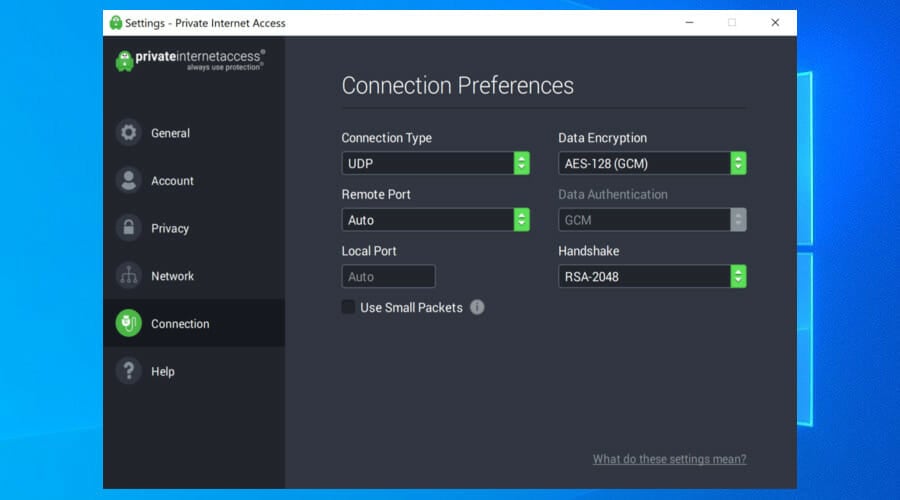
You can disguise your VPN traffic as regular web browser traffic, which makes it impossible for the hotel’s network to block your VPN service.
To do this, you need to set OpenVPN on port 443. This port is usually used for SSL/TLS encrypted web traffic. If the hotel’s network would block it, then most of the websites will not work today.
The VPN recommended below is a service that uses OpenVPN technology with its dedicated client.
Their servers also support the newer WireGuard technology, making bypassing any blocks even easier. They are a US-based company owned by Kape Technology.
We highly recommend this provider. Here are our main reasons:
- No-logs policy offers privacy and no way to trace back your footsteps
- High encryption protocols are used to ensure safety and protection
- Over 35,906 servers in 77 countries
- Built-in kill-switch
- Split-tunneling support for advanced configurations

Private Internet Access
Use this VPN to successfully masks your traffic and doesn’t get blocked by a hotel’s network.2. Check your laptop configuration
If you’re trying to connect so you can work, check with your office IT admin on your computer’s configuration and let them know what is going on so they can log the situation and troubleshoot for you.
Should you be a victim of overlapping subnets (when a connection is established from the VPN client to another network with the same private IP address range so the addresses overlap), or a restrictive hotel firewall.
In the case of an overlapping subnet, the hotel router assigns your machine a private IP address range, and this matches that of the office, so when your VPN client connects, it uses the current source IP address (office network), and the gateway you connect to sees this as a local address. Hence, they overlap and deny your VPN connection.
Suppose the issue is that the hotel’s firewall is too restrictive, preventing your IPsec connection. In that case, it won’t work because the router drops or modifies the ESP (encapsulated security payload) frames.
However, some IPsec clients have features that allow remote access behind firewalls with settings to prevent IPsec-based data traffic. As your IT admin, set up a different IPsec client for you to navigate automatically.
3. Use stealth VPN technology
This can disguise and/or scramble your VPN traffic so it isn’t easily identified as such or disguised as regular encrypted web traffic. Here’s how to unblock your VPN on almost any network:
- Stealth VPN or Obfuscation

Whether you use port 443, most VPN protocols still have the data packet header, more like a fingerprint that can let firewalls recognize VPN traffic.
If you use a VPN with stealth or obfuscation technology, the VPN connection can rewrite the packet headers or obscure them so they’re not easily recognizable.
Some of the VPNs with this include IPVanish, Proxy.sh, Torguard, VyprVPN, and VPN.ac.
You can also run your VPN through the Tor network as it makes it virtually unblockable and highly anonymous.
The downside is your VPN will be routed via multiple encrypted proxy layers with varying speeds. VPNs like NordVPN, AirVPN, Proxy.sh, and BolehVPN have built-in VPN-over-Tor support.
4. Switch between DNS servers
Some users have come across a tool called DNS Jumper, which makes switching between DNS servers easier, and is a great troubleshooting tool as well.
You can improve security by replacing the DNS with your ISP or increasing your browsing speed.
DNS Jumper helps access blocked sites, improves security by changing to more secure DNS servers, blocks inappropriate websites, speeds up browsing by moving to a faster DNS server, and simplifies the DNS server switch process (though this can be done manually). It is freeware and is portable – no need for installations.
Has any of these steps helped? Let us know by leaving a comment in the section below.
FAQs
Does VPN work on hotel WiFi?
Yes, VPN works on hotel WiFi. However, use one with plenty of servers and advanced privacy features. That’s because some hotel network admins may attempt to block known VPN ports and IP addresses. But if you enable advanced features like obfuscation, you shouldn’t worry about that.
Is it safe to use hotel WiFi with a VPN?
Yes, it is safe to use hotel WiFi with a VPN. Once you’re connected, your history and activity are completely private. Network admins or snoopers can’t see any of it.
How to use a VPN on hotel WiFi?
To use VPN on hotel WiFi, you need a dedicated app installed on your device. Then connect to the hotel WiFi and immediately after to the VPN. This way, there will be no record of anything you do online besides the VPN connection itself.
Can hotels see which websites I visit when I use VPN?
No. If your VPN works correctly, no logs will be available in your hotel’s network admin panel. The only visible thing is your VPN connection. Everything else you do once connected is 100% hidden.







